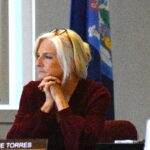PRESQUE ISLE, Maine — The city of Presque Isle has taken steps toward revising its comprehensive plan, which will outline major development goals for the next decade.
Unlike plans that detail specific projects or initiatives, such as the $5.3 million Downtown Redevelopment Plan, the comprehensive plan lists more general goals that aim to guide city councilors as they consider future projects.
Currently, the Presque Isle Planning Board is working with Jay Kamm, senior planner at Northern Maine Development Commission, to update the comprehensive plan, which previously covered the decade of 2007-2017.
“The comprehensive plan is supposed to be updated every 10 years. The city has been revising their last adopted comp plan that was adopted in 2007,” said Galen Weibley, Presque Isle’s director of economic and community development.
Though the city had submitted a revised comprehensive plan in 2019, they received suggestions for improvement from the Maine Department of Agriculture, Conservation and Forestry. After the pandemic began, the DACF experienced a backlog in available data that the city could cite, which delayed the plan further, according to Weibley.
But now the city is actively working to get the 269-page plan approved for the upcoming decade and have highlighted numerous areas of potential improvement.
For instance, under a section called “Forest and Farmland Resources,” the comprehensive plan encourages the city to “include in any future land use ordinance a requirement that commercial or subdivision developments maintain areas with prime agricultural soils as open space to the greatest extent practicable.”
Other general goals within the plan include taking measures to protect natural resources, such as existing fish, waterfowl and bird habitats, upgrading city septic systems and water treatment facilities, road improvements, affordable housing and continued investment in Tax Increment Financing Districts for business development.
“The comprehensive plan covers a city-wide vision for what the community would like to see in the next 10 years,” Weibley said. “The city plans to address affordable housing and economic development, given the desire of the city to position the community for new growth moving forward.”
The Planning Board recently met with Kamm to discuss potential changes to the plan and will review the final proposed document during their September meeting. Once they approve the plan, the City Council will hold a public meeting before suggesting changes or giving their approval. The final document will be subject to approval by DACF.
In addition to guiding councilors’ actions, the comprehensive plan gives the city better opportunities to obtain state and federal funds for community projects, Weibley said.
“The state’s agencies consider comprehensive plans when developing state infrastructure projects,” Weibley said. “By placing [the city’s] goals in the plan and holding public meetings, we’re starting community discussions and building momentum for projects in the future.”






